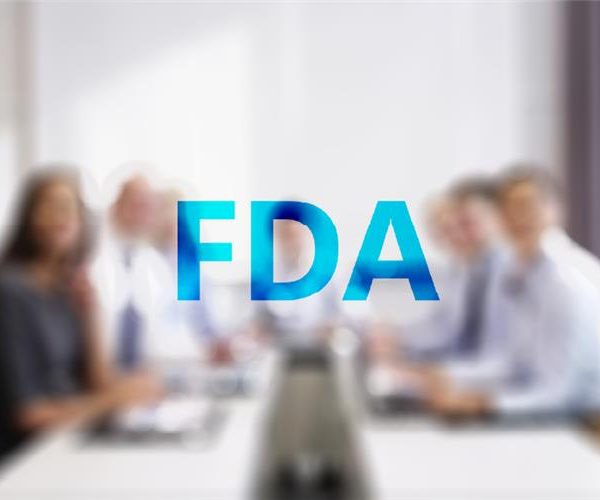Regulatory and Medical Writing
Forward-thinking medical and regulatory writers that produce cohesive, scientifically-accurate, and regulatory-robust documents.
A special thanks to this team for the hard work put into hitting this milestone – this was nothing short of remarkable.
Close monitoring of regional regulations and guidance ensures that the latest regulatory requirements are well understood and implemented across all documents.
MMS has a strong global presence in regulatory and medical writing services to consistently produce cohesive, quality-driven, and scientifically-accurate documents. As an award-winning CRO with the largest pool of in-house medical writers in the industry, MMS writers have a full range of experience and in-depth knowledge of laws and regulations across regions in the pharmaceutical industry.
Our writing team supports Sponsors on project level or across writing pipelines through Functional Service Provider (FSP) relationships. MMS expertise spans across various therapeutic areas and all phases of drug development, including nonclinical (preclinical), CMC, clinical, regulatory, safety, and medical communications documents.
The success of our Medical Writing team is built on strong processes, uncompromising quality standards, and an adaptable mindset that operates with SOUL (a sense of urgency and leadership) with every document.
The MMS team focuses on continuous improvements through AI technology-aided authoring software to streamline the medical writing process, including the use of immutable tables in the documents. Our proprietary technology is used by global medical writing experts to increase writing efficiency and quality of in-text tables in the documents, build productivity of quality control, and lower the risk of errors in the documents.MMS medical writing technology currently includes tech-enabled templates and Automatiqc®.
The trusted and collaborative medical writers at MMS seamlessly integrate with Sponsors to act as one unified team. Whether the study is interventional or observational, MMS has successfully aided in the development or amendment of protocols, Informed Consent Forms (ICFs), Investigator Brochures (IBs), and Clinical Study Reports (CSRs) with complex study designs and analytical models.
The clinical development industry is ever-changing, and staying ahead of industry changes to ensure that all clinical documents are compliant to the needs of global health authorities is a source of pride. Whether starting from the concept stage, amending existing documents, or facing overwhelming timelines, MMS is the right partner that ensures every Sponsor is provided with high-quality documents that exceed expectations the first time.
Nonclinical evaluation is a key component of drug development. Multiple nonclinical studies are required to determine the safe dose for a first-in-human (FIH) study and collect safety data in the development of any new disease treatment.
Understanding the regulatory laws and guidances as they apply to nonclinical program development and nonclinical regulatory submission documents is crucial given the growing complexity of drug development and changing regulatory requirements.
MMS is a unique CRO with an extensive group of scientific writers who are subject matter experts in nonclinical and regulatory writing. MMS nonclinical writers are focused on accurate interpretation of the nonclinical data relevant to clinical findings and cross linking it to the quality aspects of the drug to be tailored to regional and regulatory submission requirements, or the treatment type, whether it is a small molecule or biotech product. Our nonclinical writing expertise includes Module 2.4 Nonclinical Overview, Module 2.6 Written and Tabulated Summaries, as well as Module 4 reports for the full spectrum of nonclinical studies. In addition to our expertise in Module 2 and 4 eCTD regulatory documents, MMS nonclinical writers are skilled in authoring meeting requests, briefing documents, and Investigator Brochures (IB).
Chemistry, manufacturing and controls (CMC) writing services are supported by a specialized technical division of the MMS Regulatory and Medical Writing team that prepares and reviews the CMC research and development (R&D) study documents and CMC components of regulatory submissions. Expertise across a wide variety of dosage forms, type of therapies, and global health authorities allows MMS to expedite the submission of quality CMC documentation through global- or regionally-targeted dossiers.
CMC R&D data are utilized extensively throughout the drug development lifecycle to develop and optimize the drug manufacturing process, formulation, characterization, controls, etc. Strategic CMC decisions are made based on data from R&D studies. Therefore, it is critical to maintain reliable, traceable, and complete data to support these decisions. With an increased regulatory focus on the importance of data integrity, CMC R&D study plans and reports must be accurate and correct the first time so it can be presented to regulators, if needed. The MMS CMC team has the expertise and tools to author CMC R&D study plans and reports that meet regulatory and quality expectations. Accurate study documentation is the basis for gaining efficiencies while authoring regulatory submission documents (Module 2.3 Quality Overall Summary and Module 3). We employ technical knowledge and robust processes to tackle large volumes of CMC submission documents effectively while maintaining high quality of the submission documents every day.
Apart from writing CMC documents, MMS CMC writers aid in the creation of drug development plans to meet regulatory, technical, and quality requirements throughout each stage of the product lifecycle development. This includes the performance of gap analyses and creation of remediation plans, as well as continued support to address any additional concerns that arise during development.
In the past five years, regulatory submission writers at MMS have drafted components of the Common Technical Document (CTD) for Modules 2-5 for more than 50 regulatory submissions. The team is a trusted source for unparalleled regulatory writing across a broad range of therapeutic areas and programs, including rare and ultra-rare indications, biologics and biosimilars, qualified infectious diseases, pediatric-populations, and programs designated for expedited development.
With an emphasis on quality at every draft, MMS regulatory writers drive timelines, lead discussions to reconcile feedback, and ensure that style and messages are consistent and accurate across all documents in every submission.
Additionally, MMS is an industry leading CRO in the development of Risk Management Plans (RMPs), Risk Evaluation and Mitigation Strategy (REMS) documents, product label development and proprietary processes for effective 505(b)(2) submissions. Regulatory writers at MMS understand the regional and division-specific requirements for original applications and supplements, and all teams are trained for subsequent submission success, to allow for effective global submissions or adaptation to future applications.
MMS medical writers are skilled at navigating the time-sensitive and complex regulatory post-approval environment. A Sponsor’s writing needs do not end after a new drug is approved, and our medical writers have the necessary expertise to support annual requirements, including Periodic Safety Update Reports (PSURs) and Periodic Benefit Risk Evaluation Reports (PBRERs). As the drug safety profile changes, novel formulations are developed, or new indications are sought, the team of MMS safety writers can provide updates to RMPs, REMS, product labels, and comprehensive writing for pre-approval supplements.
With an extensive knowledge of global health authority guidelines, MMS is a trusted CRO that can mobilize a strong team of regulatory and medical writers to deliver high-quality, time sensitive documents that meet strict regulatory deadlines.
Communication of scientific and medical information is increasingly important with today’s data sharing expectations. The expert medical writers at MMS leverage knowledge as established scientists to translate scientific data into key messages for a wide range of audiences, providing timely, high-quality deliverables to meet all publishing and reporting needs.
In addition to providing technical writing expertise, MMS medical writers follow recognized publication standards and requirements to guide authors throughout the publication development process. This allows sponsors and subject matter experts to focus their time on providing the essential input needed for an impactful publication.








